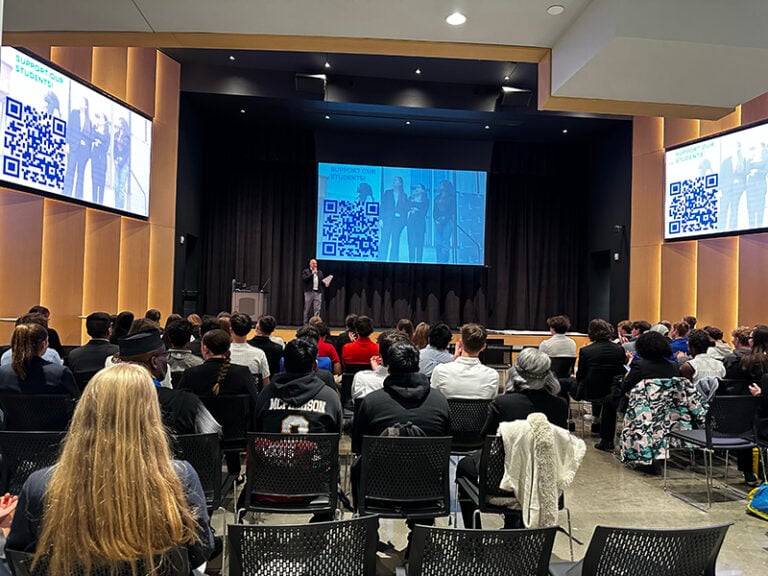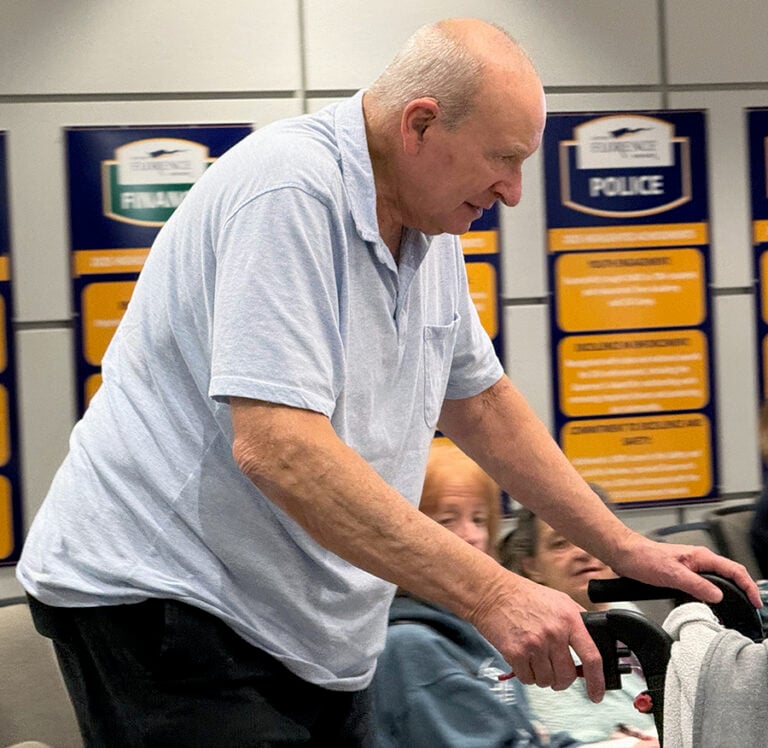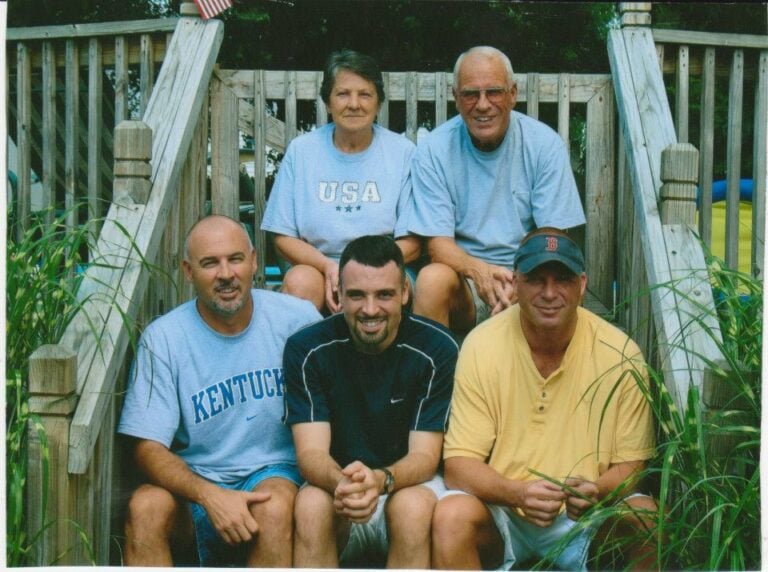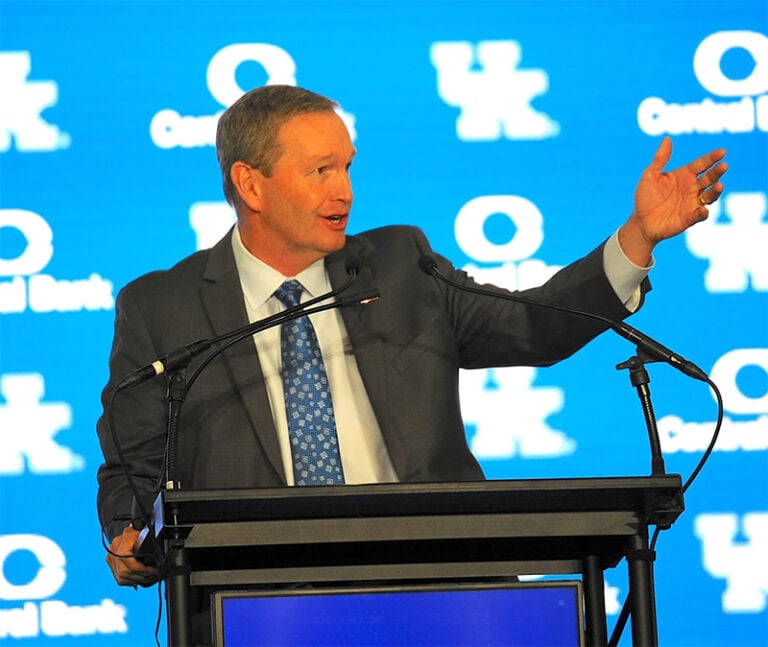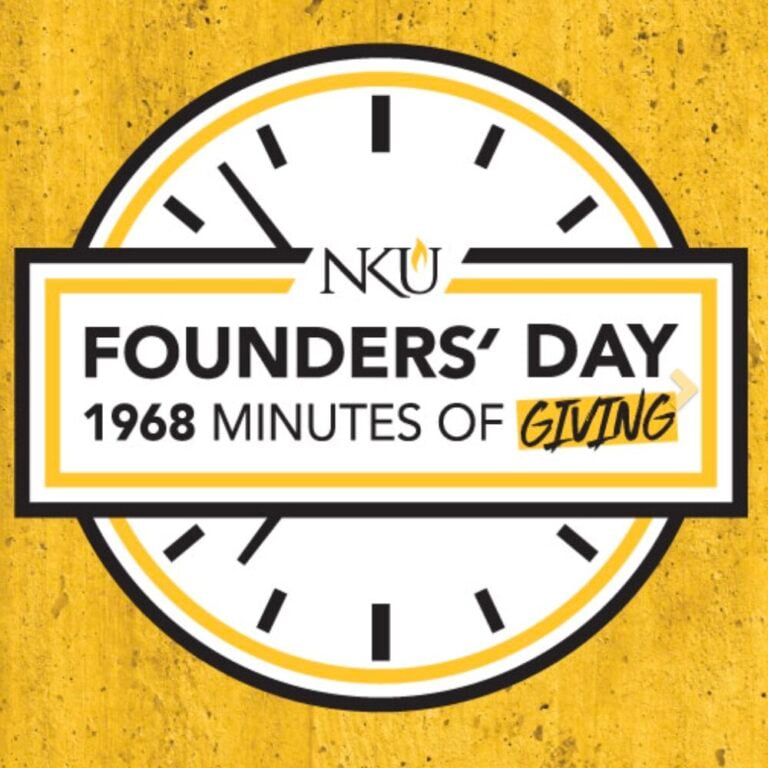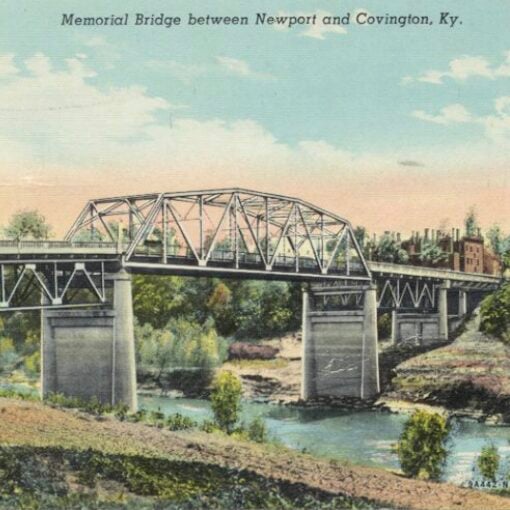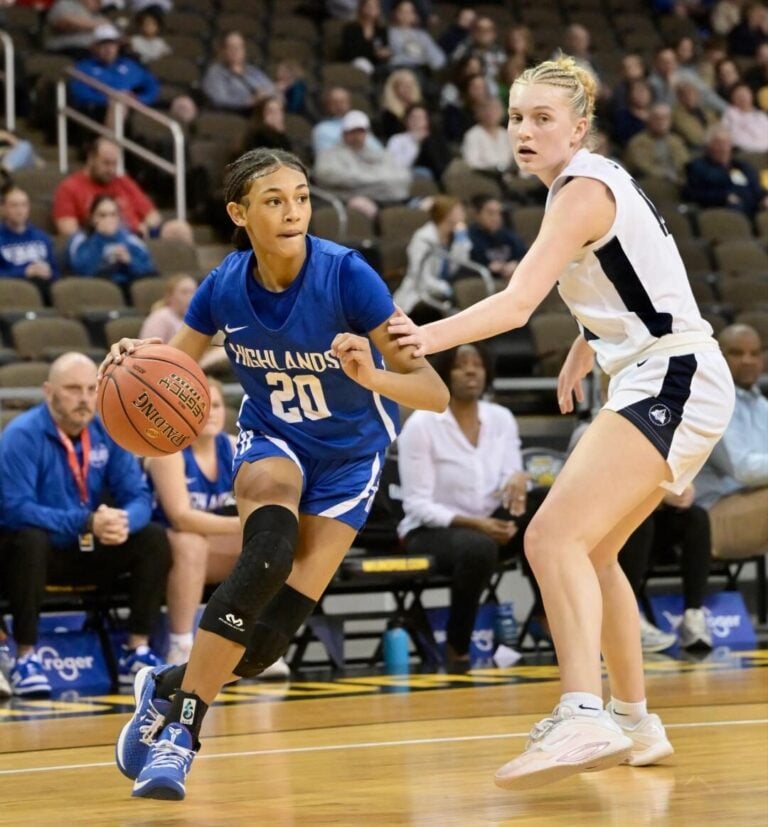By Mark Hansel
NKyTribune managing editor
Northern Kentucky University President Geoffrey S. Mearns spoke about recent successes, plans for the future and some of the challenges that lie ahead at Friday’s Fall Convocation address.

“Today marks the beginning of my fifth year, and I am proud of all that we have accomplished together,” Mearns said. “These past four years have included some significant challenges, but we continue to fulfill the fundamental promises that define our University – to put our students first, to lead with excellence, and to have a lasting impact.”
Mearns spoke to faculty, staff and students in the James C. and Rachel M. Votruba Student Union Ballroom on the Highland Heights campus, where fall classes begin Monday.
He describe this as a challenging time for colleges and universities in Kentucky and across the nation. He said there are many factors on the NKU campus that have converged to threaten the capacity to fulfill the university’s mission.
“One factor is declining demographics. There are fewer students graduating from high school,” Mearns said. “In Kentucky, the number of students graduating from high school peaked in 2011. Last year, 2,000 fewer students graduated from high school in Kentucky (and) that’s a decrease of nearly 5 percent. In fact, these demographic declines are affecting college enrollments across the country.”
The declines he added, have created another challenge, which is that colleges and universities from outside the region are recruiting in the region more aggressively than ever before, which means NKU must invest more resources to recruit and retain local students.
“All of this comes at a time when Kentucky continues to reduce funding for higher education,” Mearns said. “A report released last spring by the Center for Budget and Policy Priorities shows that, since 2008, Kentucky has cut higher education appropriations per student by 32 percent.”
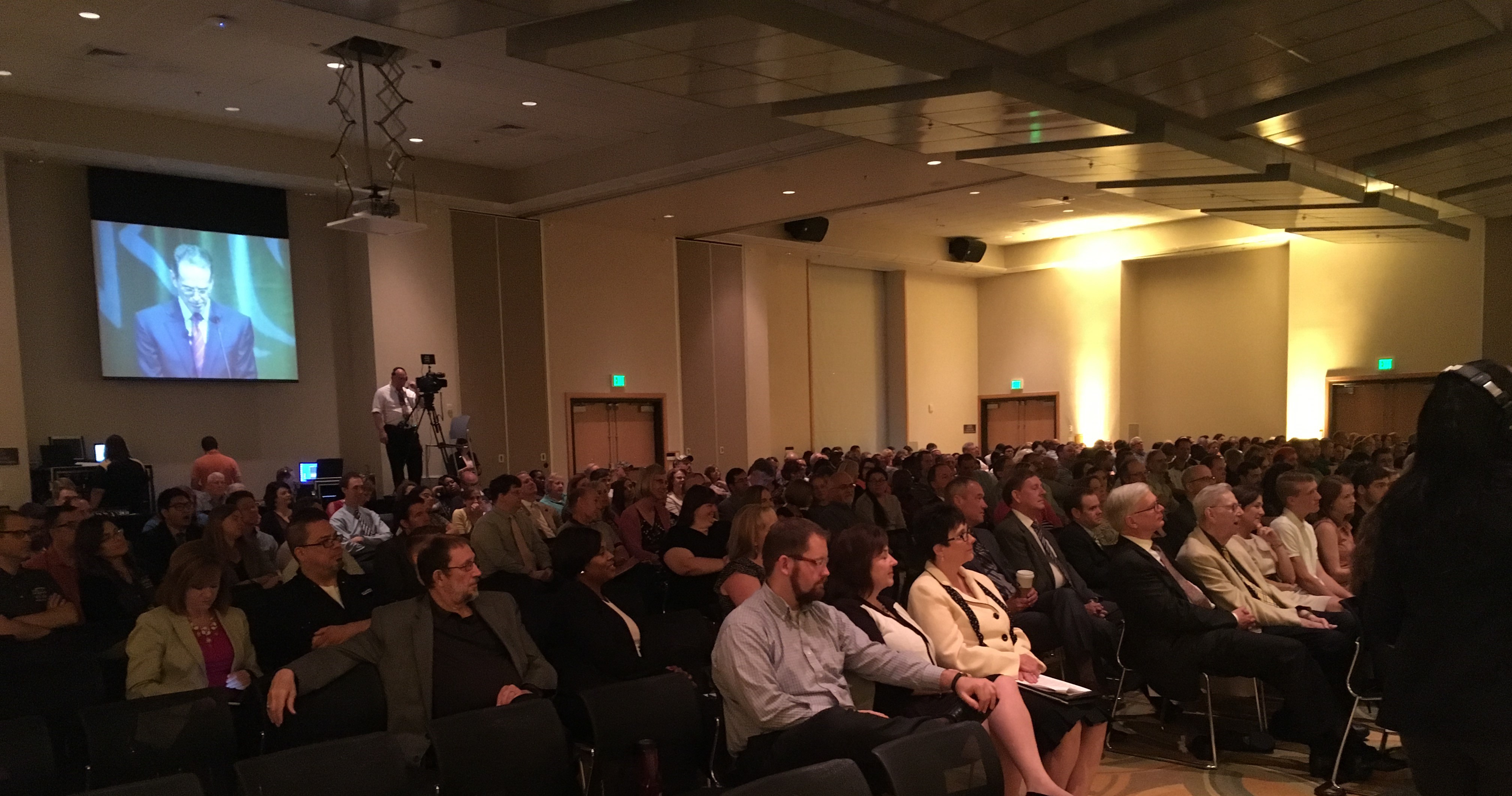
Since 2009, NKU has lost $7 million in annual state support. It has also been hurt by the increasing cost of pension contributions, which have skyrocketed from less than $4 million in 2010 to nearly $18 million this year.
“The combined adverse financial impact of these two factors is $21 million a year – about 10 percent of our annual budget, and the majority of that impact has occurred in just the last few years,” Mearns said. “Notwithstanding these extraordinary challenges, our University continues to succeed. We continue to attract bright students from across the Commonwealth and around the world and we continue to provide them with a quality, personal educational experience.”
When measured by the number of degrees conferred, the last five years have been the most productive in NKU’s history. Last year, NKU conferred 2,835 degrees, including more bachelor’s degrees than any year in our history. In the last 10 years, the University has conferred more than 27,000 degrees and achieved the highest growth rate in degrees conferred among all public universities in Kentucky.
Mearns said the vision of NKU’s former leaders has begun to bear fruit.
“Ten years ago, our University created a bold vision for a new college that would create cutting-edge, transdisciplinary programs to prepare our students for the 21st century.” Mearns said. “The move wasn’t without risks. For starters, no one knew what the word ‘informatics even meant and how could we create a high-tech college without a high-tech facility?”
Today, he said, the College of Informatics has become an integral part of NKU’s campus, and it has been designated a National Center for Academic Excellence in Cyber Defense by the National Security Agency and the Department of Homeland Security.

“Over the past decade, our informatics programs have gained national attention,” Mearns said. “Our CAI Virtual Co-Op Program received the prestigious Excellence and Innovation Award for Regional and Economic Development from AASCU, and a number of our programs are ranked among the best in America by a variety of print and online publications.”
Mearns also talked about the individual accomplishments of some of NKU’s students, such as Lunsford Scholar Will Hawkins.
When the Chase College of Law launched the Lunsford Academy for Law, Business, and Technology two years ago, one of the objectives was to attract outstanding students. Mearns said Hawkins is a great example of the success of that goal.
“A few weeks ago, Will was part of a team that competed at the Cyber Grand Challenge, a competition sponsored by the Pentagon’s Defense Advanced Research Projects Agency – DARPA,” Mearns said. “The competition sought to create ‘cyber reasoning systems,’ which automatically identify and fix software vulnerabilities. Will’s team finished second and won $1 million dollars.”
Mearns pointed to the progress the University has made in creating a more diverse campus, since then-President Jim Votruba adopted a Campus Diversity Plan Task Force six years ago. A year later, the Board of Regents formally adopted a diversity plan.
“Since then, we have made good progress,” Mearns said. “Over the last decade, enrollment of African American students, Hispanic students, and students who identify as two or more races has increased significantly. Collectively, enrollment among those groups has nearly doubled since 2007.”
Mearns also praised St. Elizabeth Healthcare, which last year committed to invest $8 million in the Health Innovation Center to create the St. Elizabeth Healthcare Simulation Center.
“This two-story comprehensive virtual care facility will provide students with active learning experiences across the continuum of care,” Mearns said. “Given our current array of health-related programs and our strategic emphasis on transdisciplinary training, we are well positioned to lead a population health effort that will make a positive difference in our region.”
Mearns encouraged those in attendance to spend the weekend reflecting on the goals NKU has set to help its students achieve academic success
“We are here to welcome them, to teach them, to advise them, to encourage them and, yes, on our best days, to inspire them” Mearns said. What a remarkable opportunity we have all been given—to serve others. It’s hard to imagine a more rewarding vocation.”
Contact Mark Hansel at mark.hansel@nkytrib.com








